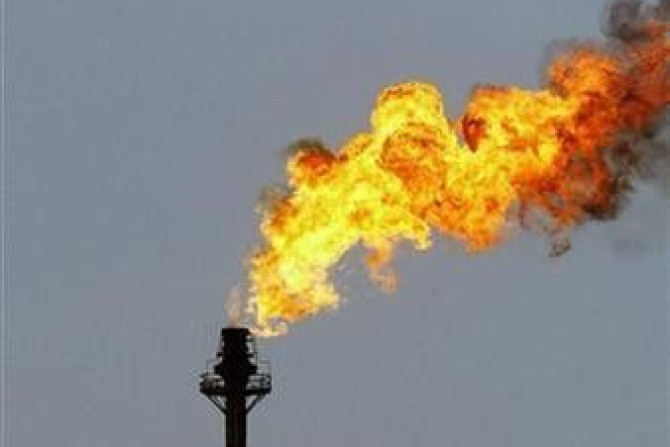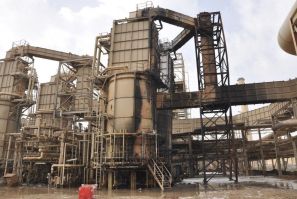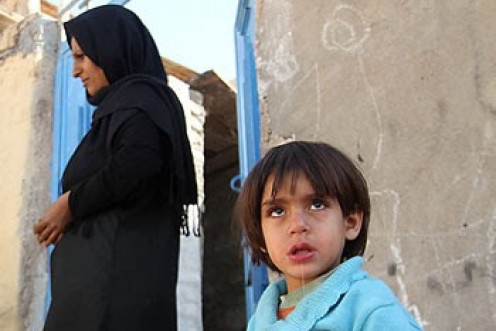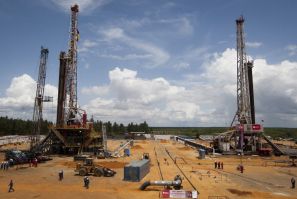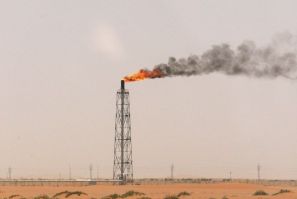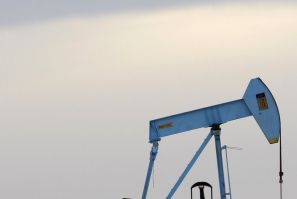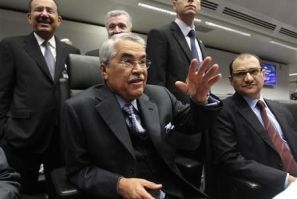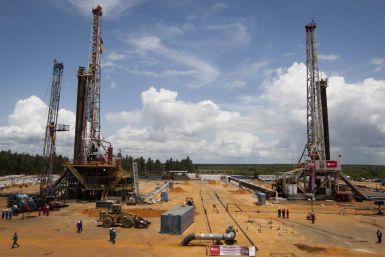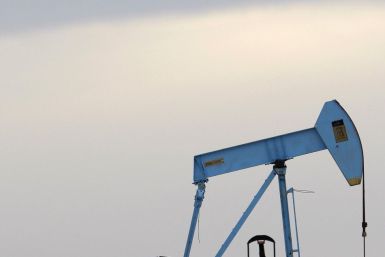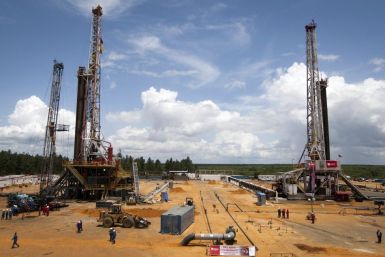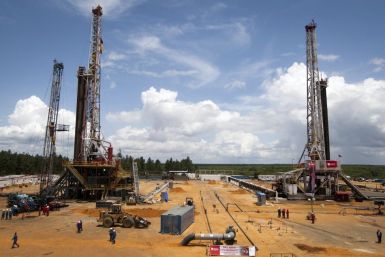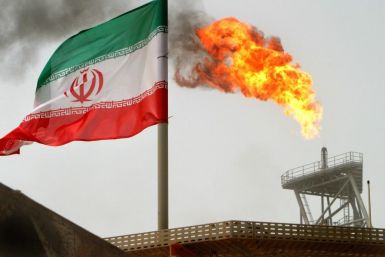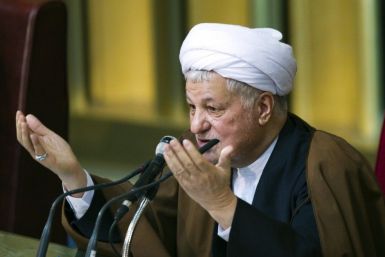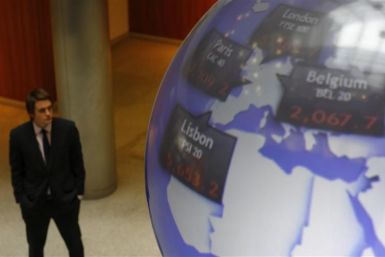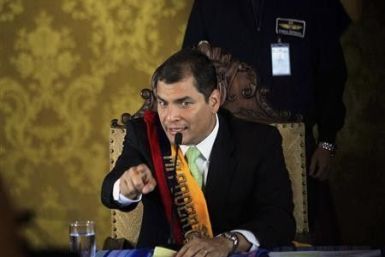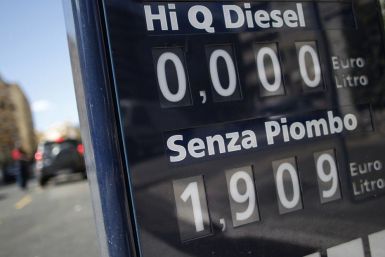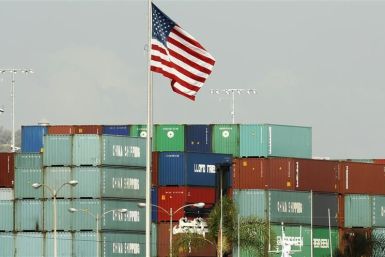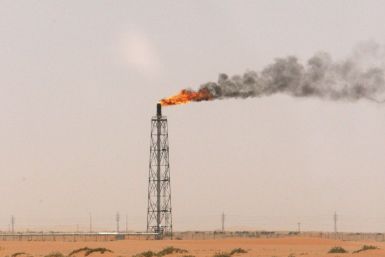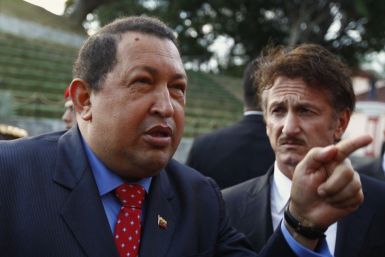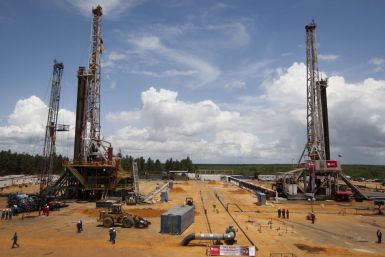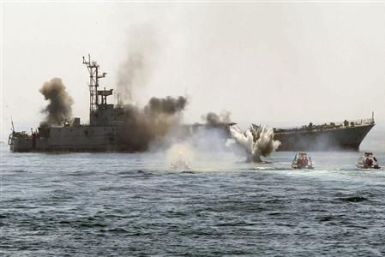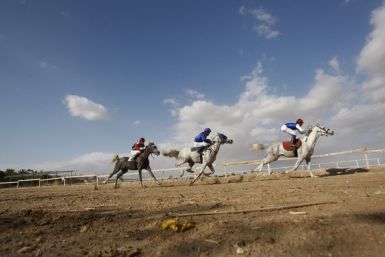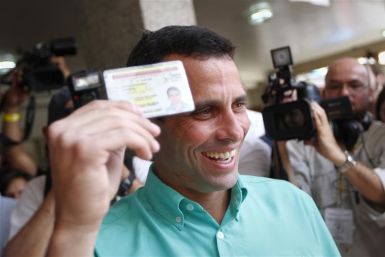Crude oil futures are slightly lower Thursday as investors await the outcome of the OPEC ministerial meeting in Vienna.
Crude oil futures hovered above $83 a barrel Wednesday ahead of a weekly report on US oil supplies as well as Thursday's OPEC ministerial meeting in Vienna.
Leaders of the world's 12-member crude oil cartel gather this week in Vienna to discuss and perhaps set a production ceiling for the group in what is expected to rubber stamp the current state of affairs. It is also expected to feature a fierce tug-of-war between Saudi Arabia, the cartel's dominant producer, and Iran.
Oil prices fell Monday to add to the sharp decline in the previous session as French and Greek election results raised doubts about those countries' commitment to the austerity measures to sort out Eurozone debt crisis.
Starwood Hotels and Resorts, operator of the Sheraton hotel chain, will open two new facilities in Iraq, 20 years after shutting down its operations there when the First Gulf War broke out.
Iran has stopped oil exports to Germany and declared a ban on imports from 100 European Union companies in retaliation to the EU embargo on Iranian crude imports which will come into force in July, the Press TV has reported.
Iran has stopped oil exports to Spain in retaliation to the European Union ban on Iranian crude imports that comes into force in July, the Mehr News Agency has reported, citing sources familiar with the situation.
The Saudis are reportedly greatly concerned by Iran’s alleged nuclear power ambitions and the impact of such a development on the Persian Gulf.
Economic recovery in Europe and North America is diverging and remains fragile, as Canada and the United States experience steady growth and European economies continue to falter, a report by the Organization for Economic Cooperation and Development said Thursday.
Ecuador's President Rafael Correa insisted on Thursday he will push ahead with plans to develop large-scale mining, seeking to ride out the arrival in Quito of ind igenous de monstrators who fear their lands will be wrecked.
Saudi Arabia produced 9.87 million barrels of crude oil per day in January, the second-highest level in three decades, according to official data released Tuesday.
President Barack Obama and British Prime Minister David Cameron discussed the possibility of releasing emergency oil reserves during a meeting Wednesday, two sources familiar with the talks said.
The United States is pressing Saudi Arabia to boost oil output to fill a likely supply gap arising from sanctions on Iran, Gulf oil officials said, adding that an increase in production is unlikely to be needed before July.
The U.S. experienced a trade deficit of $52.6 billion in January, an increase of $2.2 billion from December, according to a report by the U.S. Department of Commerce.
Europe's debt crisis and an oil price rally are the biggest threats to global oil demand this year, OPEC said on Friday, adding it was still pumping above its target despite a slide in Iranian production.
Saudi Arabia has raised crude exports and the United States is considering releasing oil from its Strategic Petroleum Reserve as crude-oil prices hit nine-month highs on Friday and concerns deepened over Iran's nuclear program.
Venezuela's ailing socialist leader, Hugo Chavez, will fly to Cuba on Friday for an unknown period to undergo new cancer surgery that has shaken the South American nation before an October presidential election.
Venezuela's economy grew last year, after two straight years of GDP contraction.
The United States at present has plenty of supply and only light demand, yet gas prices are steadily rising. Americans, while still addicted to oil, are driving more fuel-efficient cars, so why are there predictions of $5-a-gallon gas by year's end? The answer is fear -- mainly of war with Iran, a major oil producer.
Horse races are always fun to watch, even if no money is involved, and every four years, one of our two major political parties participates in a usually futile horse race. Americans are fed daily updates on who said what and on the ever fluctuating poll numbers.
Oil-rich Cuba is starting to drill offshore by awarding a contract to Spain's Repsol. But the Bolivarian Republic of Venezuela could be the biggest beneficiary.
Venezuela's opposition coalition confirmed on Sunday that Miranda state governor Henrique Capriles had won a primary before the South American nation's presidential election.


